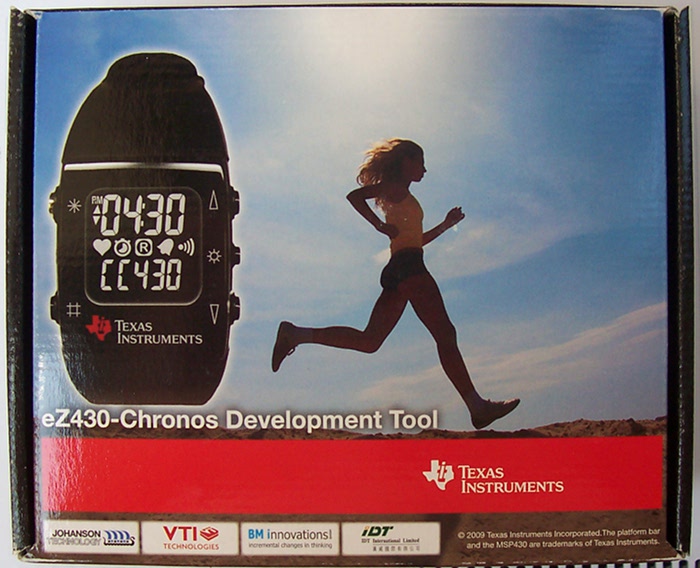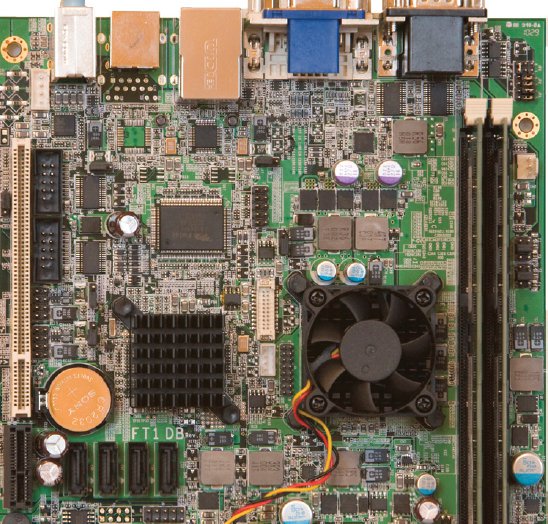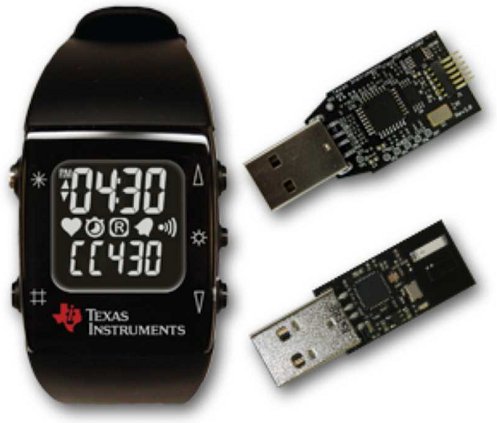I’ve just received the eZ430-Chronos development tool I ordered last week (after 2 working days) by Fedex. Today, I’ll just post some pictures of the kit and provide some descriptions. There is a woman jogging on the box because you can actually buy a chest strap to monitor your speed, heart beat and calories consumption. If you would like to purchase one (49 Euros), it is available at http://www.bm-innovations.com/index.php/shop_products.html. Apparently there are only 868MHz (EU) and 915MHz (USA) versions, and they do not sell the strap for the 433MHz (international) version as I have. The watch is normally turned off the first time you open the box, it’s just turned on on the picture because I used it before taking the pictures. The content of the box includes: eZ430-Chronos wireless watch eZ430 USB programming and debugging interface (Bottom left) CC1111 USB RF access point (Bottom right on top of the […]
Cross compiling Berkeley DB for ARM and MIPS
Following my blog entry about Databases for Linux Embedded Systems, here are the instructions to cross-compile Oracle Berkeley DB. First download the source code of the latest version of Berkeley DB (version 11gR2 – 11.2.5.1.25). You’ll need to register on Oracle website first on the download page http://www.oracle.com/technetwork/database/berkeleydb/downloads/index.html to download http://download.oracle.com/otn/berkeley-db/db-5.1.25.tar.gz (with AES encryption) or http://download.oracle.com/otn/berkeley-db/db-5.1.25.NC.tar.gz (if you don’t need encryption). Extract the source code: tar xzvf ../Downloads/db-5.1.25.tar.gz Configure and build the source code. I’ll use mipsel-linux-gcc, but any other cross-compiler could be used. cd db-5.1.25/build_unix ../dist/configure –host=mipsel-linux CC=mipsel-linux-gcc RANLIB=mipsel-linux-ranlib STRIP=mipsel-linux-strip AR=mipsel-linux-ar –prefix=/home/jaufranc/edev/lib/db-11g make make install The full berkeley DB package is 79MB: jaufranc@CNX-TOWER:~/edev/lib/db-11g$ du –max-depth=1 -h 6.6M ./lib 308K ./bin 72M ./docs 176K ./include 79M . However, you won’t need the include and docs directory in your embedded target. So you do not need to copy those. You may or may need the utilities in the bin file. The […]
AMD G-Series SDK and Development Boards
Earlier this year, AMD announced its new Embedded processors G-Series aimed at set-top boxes, smart tv, digital signage, point of sales, media servers and more in order to compete with Intel Atom solutions as well as ARM based processors. Please refer to the link above for an overview and details about the 5 processors of the AMD G-series: T56N – Dual core @ 1.6GHz with Radeon HD 6310 GPU T48N – Dual core @ 1.4 GHz with Radeon HD 6310 GPU T40N – Dual core @ 1.0 GHz with Radeon HD 6250 GPU T52R – Single core @ 1.5 GHz with Radeon HD 6310 GPU Today, I’ll discuss about the development boards and software development kits available for this platform. AMD G-Series Development Boards and Reference Designs AMD Provide two reference designs and one development board: AMD Embedded G-Series Platform Mini-ITX Reference Design. No details are publicly available as this […]
Texas Instruments MSP430 Devkit Facebook Promotion
Texas Instruments is currently offering 50% discount on selected development kits for its Facebook Fans for purchase on TI eStore until stocks last. The two development kits are sold at 50% discount: EZ430-Chronos-433 – eZ430-Chronos Wireless Watch Development Tool, a highly integrated, wireless development system based for the CC430 in a sports watch. It may be used as a reference platform for watch systems, a personal display for personal area networks, or as a wireless sensor node for remote data collection. The original price is 49 USD, but it can be ordered for 24.50 USD (including shipping) with the promo code: FCB-sfVwiUYe EZ430-F2013 – MSP430 USB Stick Development Tool, a complete development system with detachable target board and USB emulator. Ideal for new users. The original price is 20 USD, but it can be ordered for 10 USD (including shipping) with the promo code: FCB-ZC7Y86yQ I’ve ordered the Wireless Watch […]
Netgem’s IPTV 2.0 Home Cloud SDK
Netgem announced the release of its “Home Cloud” SDK based on IPTV 2.0 open architecture. Here’s an excerpt from the press release: Paris, France March 15 , 2011 Netgem, an IPTV technology leader, has announced it has made its Home Cloud software development kit (SDK) available to application developers, Internet service providers and operator partners. Netgem is further developing its partner ecosystem to enable third parties to take advantage of its IPTV 2.0 open architecture. This application framework is designed for the development of live and on-demand TV and multimedia applications. Using the open and fully documented APIs telecom operators and their partners can develop their local ecosystem of applications and services to differentiate their offering from competitors. Since Netgem is a pure technology vendor it does not interfere with the economics of the relationship between operators and developers, who are able to share 100% of the revenue. The full […]
Qemu Linaro Versatile Express Image on Ubuntu 10.10
I’ve installed qemu-linaro and run an ARM image based on the instructions on https://wiki.linaro.org/PeterMaydell/QemuVersatileExpress. I used Ubuntu 10.10 desktop edition. First, install the Linaro images tools: sudo apt-get install linaro-image-tools Download the Linaro release and versatile hardware pack: wget http://releases.linaro.org/platform/linaro-n/nano/alpha-3/linaro-natty-nano-tar-20110302-0.tar.gz wget http://releases.linaro.org/platform/linaro-n/hwpacks/alpha-3/hwpack_linaro-vexpress_20110302-0_armel_supported.tar.gz You can download another hwpack for omap3, i.mx51, pandaboard, beagleboard, ST U8500, etc.. if needed at http://releases.linaro.org/platform/linaro-n/hwpacks/alpha-3/ Download the source, extract it, then configure, build and install qemu linaro: wget http://launchpad.net/qemu-linaro/trunk/2011.03-1/+download/qemu-linaro-0.14.50-2011.03-1.tar.gz tar xzvf qemu-linaro-0.14.50-2011.03-1.tar.gz cd qemu-linaro-0.14.50-2011.03-1 ./configure –prefix=/usr make sudo make install Make sure the prefix is set to /usr in order to overwrite any previous version of Qemu (It installed qemu linaro in /usr/local/ instead in my case). Failure to do so may generate the following error during linaro-media-create: qemu: fatal: cp15 insn ee1d6f70 Instead of compiling qemu, you can install qemu-linaro with apt-get (this will avoid possible version issues between linaro-media-create and qemu): sudo add-apt-repository ppa:linaro-maintainers/tools […]
Cross compiling SQLite for ARM and MIPS
Following my blog entry about Databases for Linux Embedded Systems, here are the instructions to cross-compile SQlite. First download the latest version of SQLite amalgamation with autoconf script (version 3.75): wget http://www.sqlite.org/sqlite-autoconf-3070500.tar.gz Extract the source code: tar xzvf sqlite-autoconf-3070500.tar.gz Configure and build the source code. I’ll use mipsel-linux-gcc, but any other cross-compiler could be used. cd sqlite-autoconf-3070500 ./configure –host=mipsel-linux –target=mipsel-linux –prefix=/home/jaufranc/edev/sqlite-mips make make install At this point the library is correctly configured and installed, so you’d just need to copy the relevant files to your target board (skip include and share directories and libsqlite3.a) . Let’s check the size of the required files: ls -l ../sqlite-mips/bin/ -rwxr-xr-x 1 jaufranc jaufranc 125513 2011-03-14 14:21 sqlite ls -l ../sqlite-mips/lib/libsqlite3.so.0.8.6 -rwxr-xr-x 1 jaufranc jaufranc 2087584 2011-03-14 14:21 ../sqlite-mips/lib/libsqlite3.so.0.8.6 sqlite binary is 122.57KB and the dynamic library 2038.65KB. Let’s see if we can optimize the binary size with compilation flags and by disabling some […]
HbbTV: Hybrid Broadcast Broadband TV
HbbTV (Hybrid Broadcast Broadband TV) is a new European standard for web-based smart TV applications for TVs and set-top boxes. Services and applications delivered via HbbTV include traditional broadcast TV channels, catch-up services, video-on-demand, EPG, interactive advertising, personalisation, voting, games, social networking and other multimedia applications. The latest version of the HbbTV specification is 1.1.1 and can normally be downloaded after registering on ETSI website. The official nomenclature of the specification is ETSI TS 102 796. It is also directly available at the following link – http://www.etsi.org/deliver/etsi_ts/102700_102799/102796/01.01.01_60/ts_102796v010101p.pdf The HbbTV specification is based on existing standards and web technologies including OIPF (Open IPTV Forum), CEA, DVB and W3C. HbbTV Specifications specifically makes use of the following standards: CEA-2014 – Web-based Protocol and Framework for Remote User Interface on UPnP Networks and the Internet (Web4CE), also known as CE-HTML. Open IPTV Forum Release 1 Volume 5 – Declarative Application Environment of the […]











